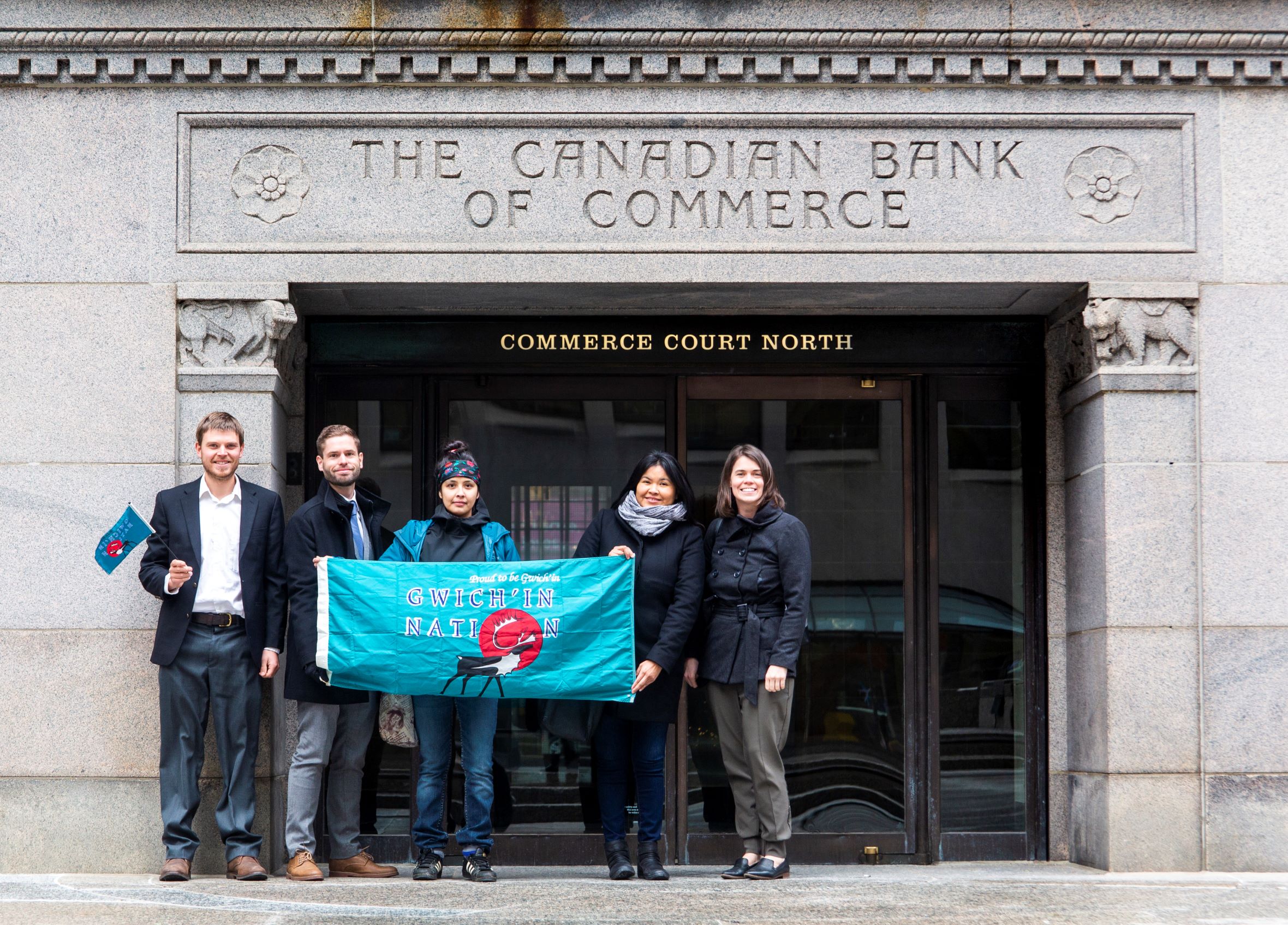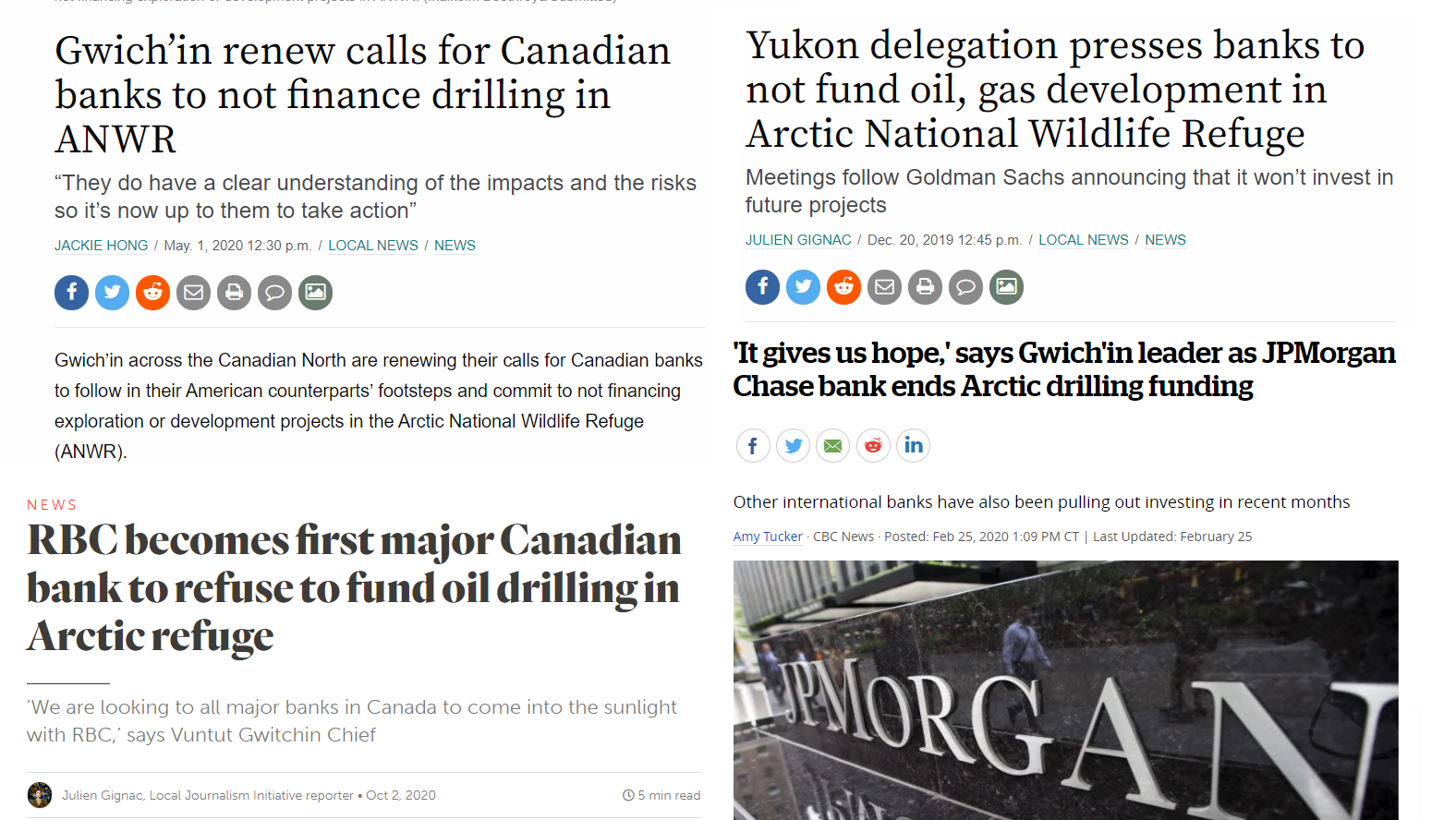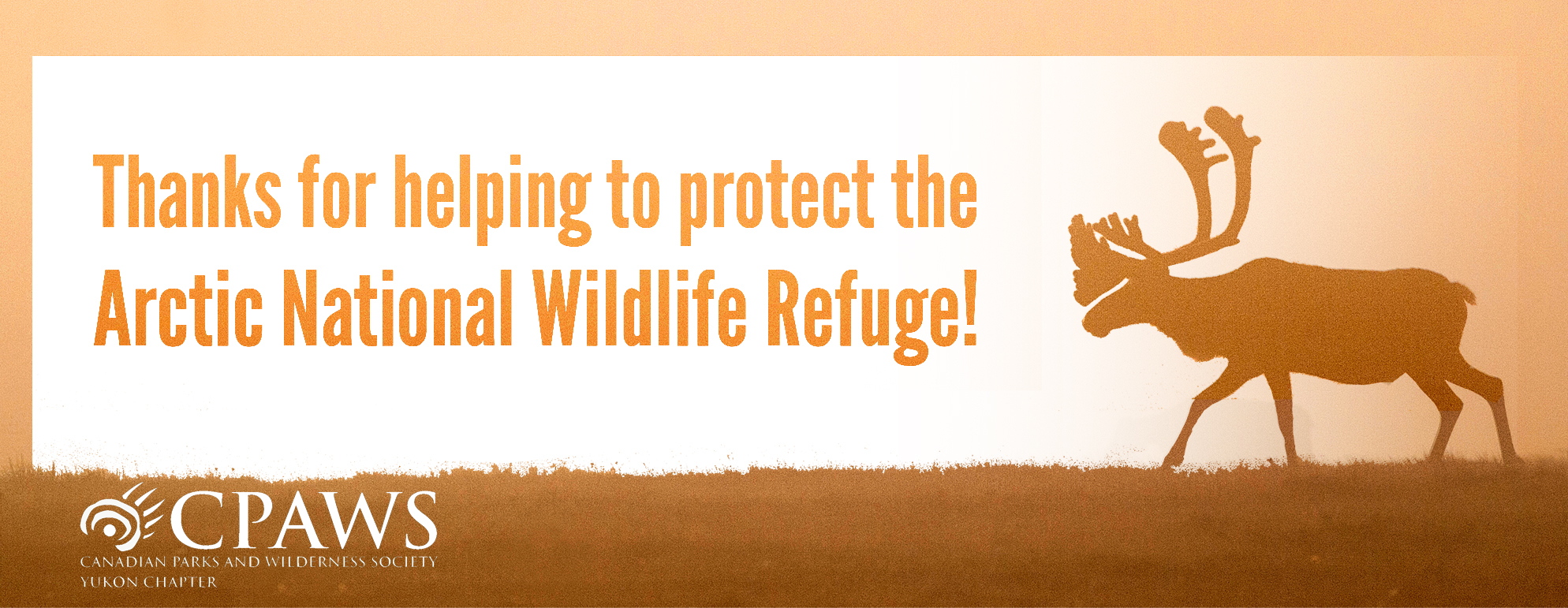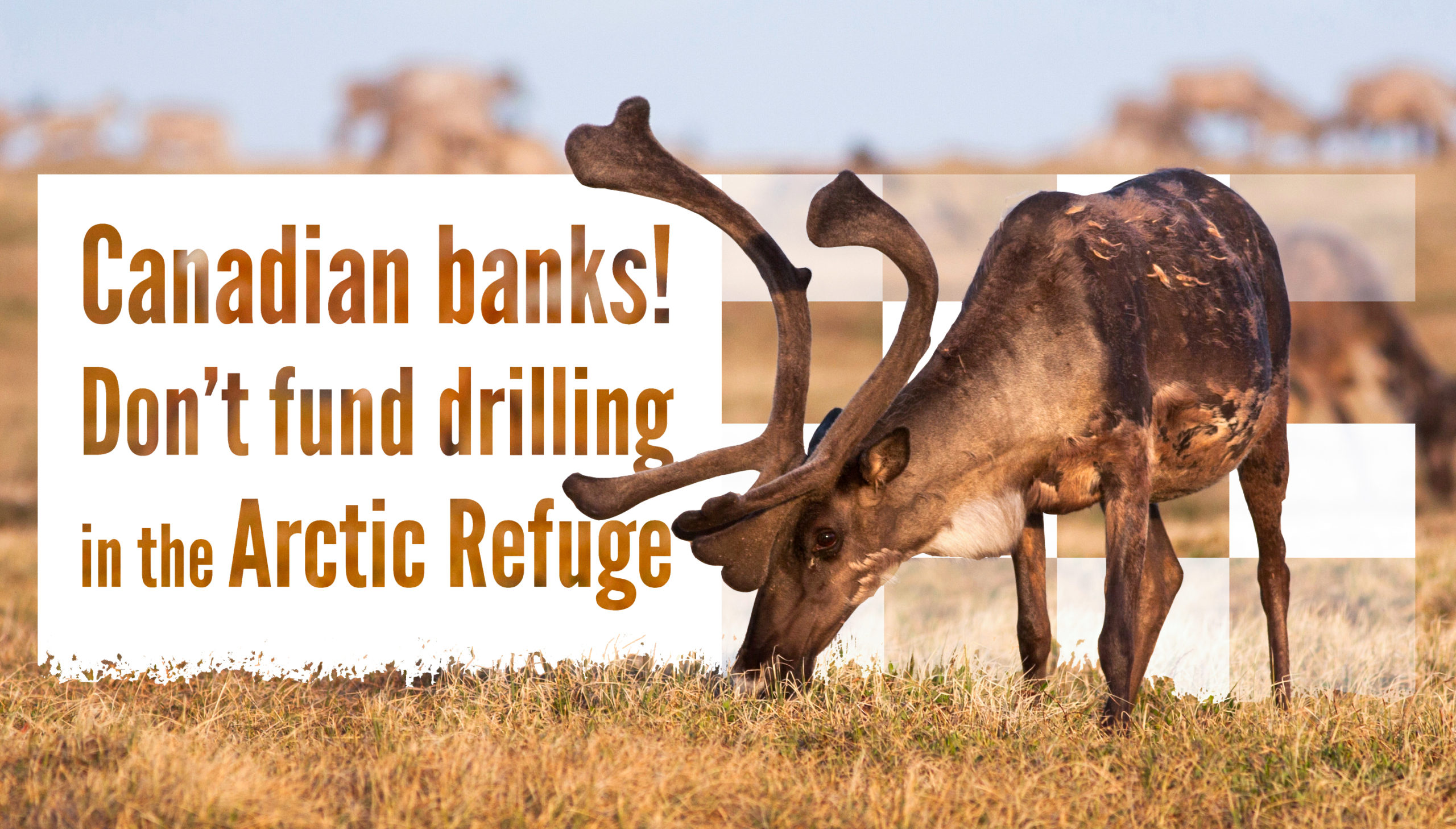
Why RBC agreed with us on the Arctic Refuge
Written by Malkolm Boothroyd, Campaigns Coordinator
Last December I stepped out of an elevator, and onto the fortieth floor of the Royal Bank Plaza. I’d never dreamed that the campaign to protect the Porcupine caribou herd would take me to the heart of Toronto’s financial district. Corporate campaigning was brand new to me, just as it was to the rest of our team: Cheryl Charlie and Liz Staples with the Vuntut Gwitchin First Nation, Geraldine Blake representing the Gwich’in Tribal Council and Chris Rider, CPAWS Yukon’s Executive Director.
We were here to convince Canada’s largest banks to withhold finance for oil drilling in the Arctic Refuge—but maybe this was all a hopeless endeavor. After all, could the few of us really sway banks with sixty storey tall buildings, and combined assets totaling five and a half trillion dollars?
Well, we did! A few weeks ago, the Royal Bank of Canada released a new policy, pledging never to fund drilling in the calving grounds of the Porcupine caribou herd. It’s a huge success, and adds to the growing momentum behind the corporate campaign to protect the Arctic Refuge.
I think three factors were critical in RBC making the right decision. Firstly, Cheryl, Geraldine and Liz compellingly described the cultural and human rights implications of Arctic Refuge drilling. Oil development in the calving grounds would be immensely damaging to the Porcupine caribou herd, which in turn could bring serious impacts to the Gwich’in communities across the north that depend on caribou.
Secondly, the financial arguments for drilling in the Arctic Refuge are dubious. The oil industry across Alaska is in decline. The state produces less than a quarter of the oil it did thirty years ago, and oil majors like British Petroleum are pulling out of Alaska. There’s also tremendous uncertainty about how much oil lies beneath the calving grounds. The only test well ever drilled in the Refuge was reportedly dry, and seismic data is over thirty years old. Meanwhile oil prices are tanking and banks are losing tens of millions of dollars as oil companies default on loans.
Finally, the banking industry is under more scrutiny than ever for its involvement in fossil fuel projects. Banks have taken heavy criticism for funding the tar sands, fracking and the Dakota Access Pipeline. The financial industry is under increasing pressure to bolster efforts to tackle the climate crisis by moving money out of fossil fuels.
We outlined these issues in our meeting with RBC, and were encouraged by their attentive listening, notetaking and questions. We left feeling optimistic about the prospects of RBC agreeing to our request. Liz kept in touch with our contacts at RBC following the meeting, and kept them abreast of the latest developments. At the start of September we convened for a video conference with RBC, and learned that our efforts had convinced the bank. We had to keep a lid on the news until RBC published the policy, but we’re thrilled to share it now.
I’m sure RBC was also swayed by the growing list of banks that have acted on the Arctic Refuge. In recent months Goldman Sachs, JP Morgan, Citi, Morgan Stanley and Wells Fargo have all pledged to withhold finance from Arctic Refuge drilling—after campaigning from the Gwich’in Steering Committee and Sierra Club. A dozen more banks overseas have released similar policies.
Thanks to these policies, the pool of finance available for Arctic Refuge drilling is quickly drying up. RBC’s announcement adds even more momentum to the campaign, and will hopefully spur the rest of Canada’s banks to act. There’s mounting opposition to drilling from all sides, and I’m sure oil companies are taking note.

If you haven’t already, please click here to send a letter to TD, BMO, CIBC and Sociabank, asking them to not to fund Arctic Refuge drilling. One more interesting note: CIBC has responded to these letters by saying “we do not currently, nor do we intend to finance any project or transaction that involves exploration or development related to oil and gas in the [Arctic National Wildlife Refuge]. We recognize the unique importance of this refuge from both and (sic) environmental and social perspective.” This is promising, but isn’t a concrete policy. We’ll keep pressuring CIBC and the rest of the Canadian banks on the Arctic Refuge.
I’m hugely grateful to Liz Staples, Caribou Coordinator at VGFN. This campaign couldn’t have happened without her. We also received guidance from many other organizations, but particularly the Sierra Club. A shout out for their support.


